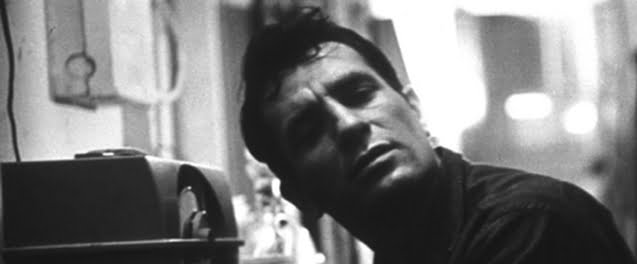
Jack Kerouac, writer on a roll
On this day in 1951 American author Jack Kerouac was preparing to write his defining novel On the Road. The manuscript was to be typed on what he called ‘the scroll’ – a continuous, one hundred and twenty-foot scroll of tracing paper sheets that he carefully cut to size and taped together. His intention was that this roll would be fed continuously through his typewriter.
Thus Kerouac was planning the writing of a ‘stream of consciousness’ style of narrative, such as appears in James Joyce’s Ulysses. Certainly he was a great admirer of Joyce; both On the Road and Ulysses are books about journeys, as indeed are so many great books.
Perhaps Kerouac knew this poem about riding down the road, Always Comes Evening, written by pulp fiction writer Robert E Howard who shot himself in 1936:
Riding down the road at evening with the stars or steed and shoon
I have heard an old man singing underneath a copper moon;
God, who gemmed with topaz twilights, opal portals of the day,
On our amaranthine mountains, why make human souls of clay?
For I rode the moon-mare’s horses in the glory of my youth,
Wrestled with the hills at sunset – till I met brass-tinctured Truth.
Till I saw the temples topple, till I saw the idols reel,
Till my brain had turned to iron, and my heart had turned to steel.
Satan, Satan, brother Satan, fill my soul with frozen fire;
Feed with hearts of rose-white women ashes of my dead desire.
For my road runs out in thistles and my dreams have turned to dust.
And my pinions fade and falter to the raven wings of rust.
Riding down the road at evening when the wind was on the sea,
I have heard an old man singing, and he sang most drearily
Strange to hear, when dark lakes shimmer to the wailing of the loon,
Amethystine Homer singing under evening’s copper moon.
Today I look for tolerance in others.
Photo Credit: John Cohen, 1959
